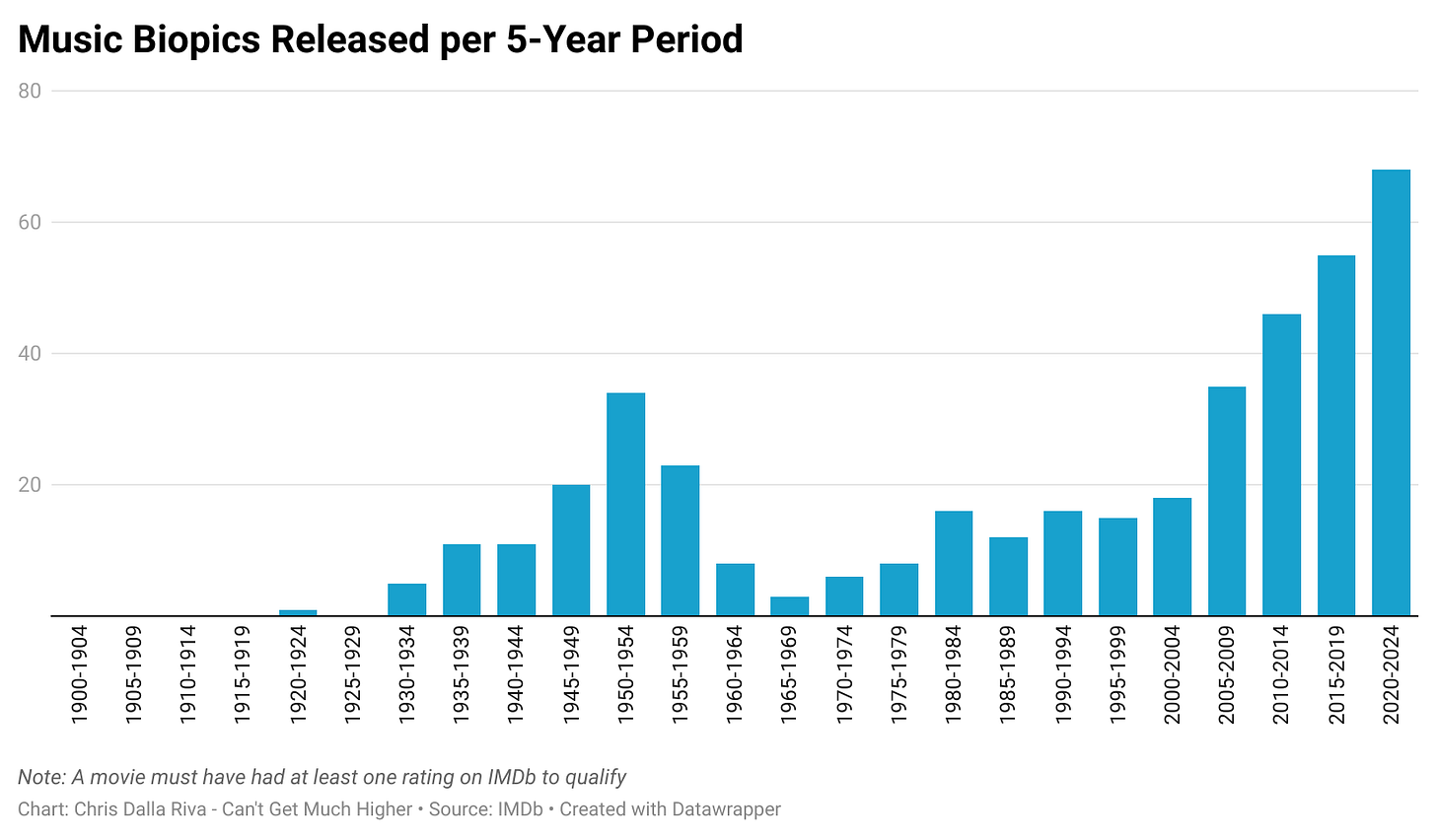Welcome back to another edition of Can’t Get Much Higher, a newsletter exclusively devoted to the intersection of music and data. I hope your last week was filled with loads of great songs. In the past, we have connected music to television, but movies have largely remained absent from this newsletter. Today, we will rectify that.
The Music Biopic Boom
By Chris Dalla Riva
As I sat down to watch the Bob Dylan biopic A Complete Unknown a few months ago, I began leafing through other music biopics in my mind. Walk the Line. Love & Mercy. La Bamba. Ray. Coal Miner’s Daughter. Music biopics can be super cheesy, but I’m a sucker to have the lives of my musical heroes dramatized on the silver screen.
As I was mulling over the list, I was struck by something. I felt like there have been a ton of music biopics in the last few years. There was an Elvis Presley biopic (2022). There was a Bob Marley biopic (2024). There was a Whitney Houston biopic (2022). There as an Amy Winehouse biopic (2024). When I got out of the Dylan movie, I wanted to check to see if there were really a flood of biopics or I was imagining it.
When I eventually had some free time, I hit up my friend
to ask about movie data. Parris runs , a newsletter focused on culture and data. Much of his coverage is focused on movies. I figured he’d have the movie data goods. And he did. He pointed me to IMDb, the internet movie database with over 15 million movies and television shows. By excluding documentaries and including films tagged with “music” and “biography” that had at least one review, I could get an answer to my question.Lo and behold, it looked like my hunch was correct. Between 1990 and 1994, IMDb had evidence of 16 music biopics. Between 2020 and 2024, there were 68, a 325% increase. Not only that, but from the 1990s onward that growth had been steady. There really were more biopics. Right? There’s a bit more to the story.
If you look at the above graph, you’ll notice that before the recent growth in music biopics, there was an early period of growth that peaked in the 1950s. This peak was nowhere near the peak from 2020 to 2024, but there are many more movies released these days. It’s possible that the growth in music biopics is really just a function of the growth in movies generally rather than more interest in the genre. Again, we can check.
Keep reading with a 7-day free trial
Subscribe to Can't Get Much Higher to keep reading this post and get 7 days of free access to the full post archives.





